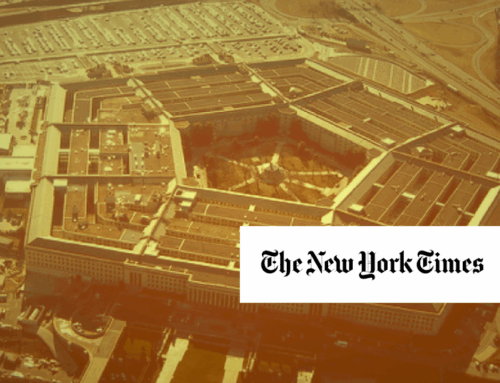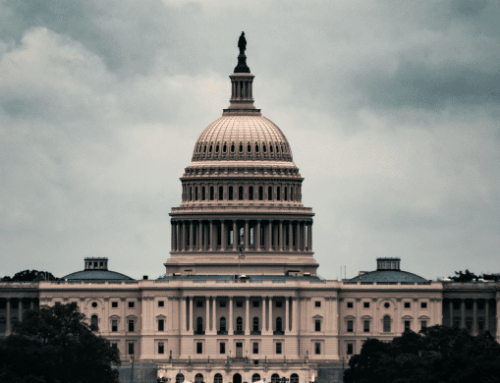Today, the House Armed Services Committee (HASC) released the Chairman’s mark of the Fiscal Year 2025 National Defense Authorization Act (NDAA), an annual policy bill that authorizes funding for national security programs and lays out new national security policies.
The bill adheres to the budget caps agreed to last year between President Biden and then-Speaker of the House Kevin McCarthy (R-CA), which limited discretionary spending across the board to a one percent increase over the previous year for two years.
But House Armed Services Committee Chair Mike Rogers (R-AL) suggested the bill’s adherence to the cap was merely a means of making the case for a larger Pentagon budget, saying “there’s a lot of stuff that we can’t do… and we’re gonna highlight what got left out with this number and why that’s the problem.”
Unfortunately, for the most part, other key architects of the Pentagon’s policy and spending bills in Congress seem to agree. Sen. Jon Tester (D-MT), who chairs the Senate Appropriations Subcommittee on Defense, told reporters, “We’re not sure that the caps are going to hold.” To his point, Sen. Susan Collins (R-ME), Senate Appropriations Committee Vice Chair, argued that the President’s budget “does not even begin to cover inflation, much less the growing and dangerous threats we are facing around the globe.” On the House side, the new House Appropriations Committee Chair Tom Cole (R-OK) said in a hearing that “I think the budget is too low.”
Thankfully, one key lawmaker, House Armed Services Ranking Member Adam Smith (D-WA), dismissed calls for ignoring the caps, saying “I’m not walking down the ‘Oh my god, we don’t have enough money we’re all gonna die’ path… I’m just not. We’ve got roughly $900 billion. Let’s go make it work.”
What Changed
One major change from the Pentagon’s budget request was an additional $1 billion for a second Virginia-class attack submarine, which would be incrementally funded over multiple years. The Pentagon made the case for cutting one of two Virginia-class subs from previous plans by pointing out that there was a backlog of orders for the subs, and that investing some of those funds in the submarine industrial base would be more prudent.
The bill cuts $1.2 billion from the Pentagon’s request for a Constellation-class frigate, presumably in order to pay for the cost of the additional Virginia-class attack submarine.
It also adds $355 million to help counter threats from drones, a response to the Army’s unfunded priority list.
On the policy side, the bill prohibits the use of funds for retiring the B83-1 nuclear gravity bomb, in defiance of a call for cutting that bomb in the Biden Administration’s 2022 Nuclear Posture Review. The bill also blocks retirement of the W76-2, a low-yield nuclear warhead that the Trump administration deployed on the Ohio-class ballistic missile submarine fleet. It also prohibits the use of funds for reducing the number of deployed ICBMs in the U.S. nuclear arsenal below the 400 currently deployed, a sign of congressional leadership’s ongoing commitment to the least survivable leg of the nuclear triad.
Truncated Process
In a notable departure from standard practice, committee leaders opted to forgo letting the appropriate subcommittee markup draft titles of the bill before heading to full committee. The first opportunity for HASC rank-and-file members to weigh in will come next week when the full committee marks up the bill on May 22.
Given that this is an election year, there have also been rumblings that congressional leaders may look to avoid a potentially heated floor fight on the NDAA by limiting debate and amendments, so it’s possible that May 22 will be the only opportunity for House members to weigh in on the text of the NDAA, and that only HASC members will be afforded that opportunity. That would be a highly undemocratic approach to managing over half of the nation’s discretionary budget.
As HASC prepared for markup next week, committee members should reject any proposed amendments that would add to the Pentagon’s topline, and push for fiscal restraint in the name of national security. Beyond next week, Congress could also effectively add to the Pentagon budget by passing another “emergency” supplemental spending package. Any such proposal that mislabels long-term spending as emergency needs should also be met with resistance from fiscally responsible lawmakers.










